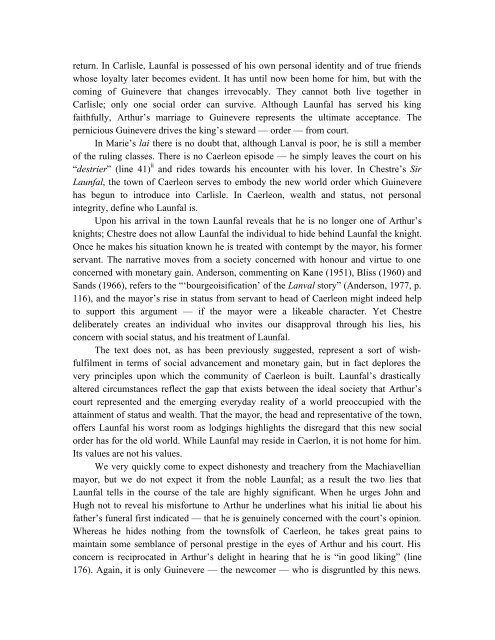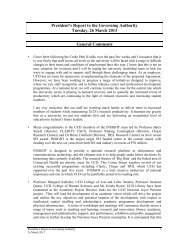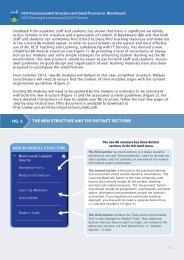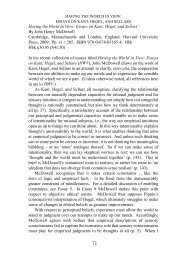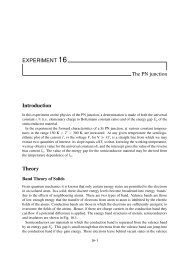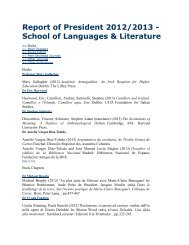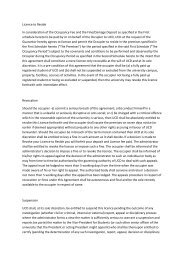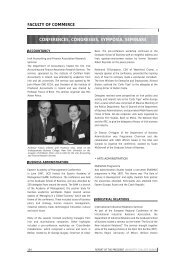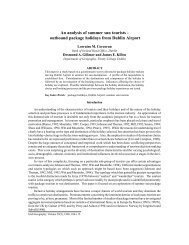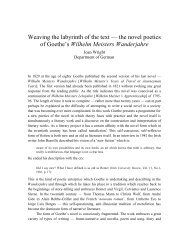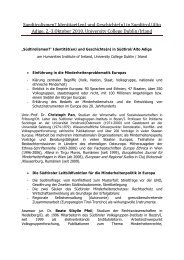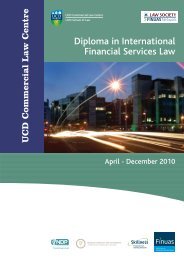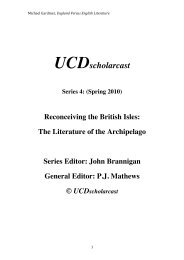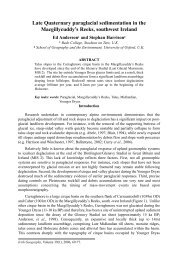Social Disorder and Discontent in Thomas Chestre's Sir Launfal
Social Disorder and Discontent in Thomas Chestre's Sir Launfal
Social Disorder and Discontent in Thomas Chestre's Sir Launfal
Create successful ePaper yourself
Turn your PDF publications into a flip-book with our unique Google optimized e-Paper software.
eturn. In Carlisle, <strong>Launfal</strong> is possessed of his own personal identity <strong>and</strong> of true friends<br />
whose loyalty later becomes evident. It has until now been home for him, but with the<br />
com<strong>in</strong>g of Gu<strong>in</strong>evere that changes irrevocably. They cannot both live together <strong>in</strong><br />
Carlisle; only one social order can survive. Although <strong>Launfal</strong> has served his k<strong>in</strong>g<br />
faithfully, Arthur’s marriage to Gu<strong>in</strong>evere represents the ultimate acceptance. The<br />
pernicious Gu<strong>in</strong>evere drives the k<strong>in</strong>g’s steward — order — from court.<br />
In Marie’s lai there is no doubt that, although Lanval is poor, he is still a member<br />
of the rul<strong>in</strong>g classes. There is no Caerleon episode — he simply leaves the court on his<br />
“destrier” (l<strong>in</strong>e 41) ii <strong>and</strong> rides towards his encounter with his lover. In Chestre’s <strong>Sir</strong><br />
<strong>Launfal</strong>, the town of Caerleon serves to embody the new world order which Gu<strong>in</strong>evere<br />
has begun to <strong>in</strong>troduce <strong>in</strong>to Carlisle. In Caerleon, wealth <strong>and</strong> status, not personal<br />
<strong>in</strong>tegrity, def<strong>in</strong>e who <strong>Launfal</strong> is.<br />
Upon his arrival <strong>in</strong> the town <strong>Launfal</strong> reveals that he is no longer one of Arthur’s<br />
knights; Chestre does not allow <strong>Launfal</strong> the <strong>in</strong>dividual to hide beh<strong>in</strong>d <strong>Launfal</strong> the knight.<br />
Once he makes his situation known he is treated with contempt by the mayor, his former<br />
servant. The narrative moves from a society concerned with honour <strong>and</strong> virtue to one<br />
concerned with monetary ga<strong>in</strong>. Anderson, comment<strong>in</strong>g on Kane (1951), Bliss (1960) <strong>and</strong><br />
S<strong>and</strong>s (1966), refers to the “‘bourgeoisification’ of the Lanval story” (Anderson, 1977, p.<br />
116), <strong>and</strong> the mayor’s rise <strong>in</strong> status from servant to head of Caerleon might <strong>in</strong>deed help<br />
to support this argument — if the mayor were a likeable character. Yet Chestre<br />
deliberately creates an <strong>in</strong>dividual who <strong>in</strong>vites our disapproval through his lies, his<br />
concern with social status, <strong>and</strong> his treatment of <strong>Launfal</strong>.<br />
The text does not, as has been previously suggested, represent a sort of wishfulfilment<br />
<strong>in</strong> terms of social advancement <strong>and</strong> monetary ga<strong>in</strong>, but <strong>in</strong> fact deplores the<br />
very pr<strong>in</strong>ciples upon which the community of Caerleon is built. <strong>Launfal</strong>’s drastically<br />
altered circumstances reflect the gap that exists between the ideal society that Arthur’s<br />
court represented <strong>and</strong> the emerg<strong>in</strong>g everyday reality of a world preoccupied with the<br />
atta<strong>in</strong>ment of status <strong>and</strong> wealth. That the mayor, the head <strong>and</strong> representative of the town,<br />
offers <strong>Launfal</strong> his worst room as lodg<strong>in</strong>gs highlights the disregard that this new social<br />
order has for the old world. While <strong>Launfal</strong> may reside <strong>in</strong> Caerlon, it is not home for him.<br />
Its values are not his values.<br />
We very quickly come to expect dishonesty <strong>and</strong> treachery from the Machiavellian<br />
mayor, but we do not expect it from the noble <strong>Launfal</strong>; as a result the two lies that<br />
<strong>Launfal</strong> tells <strong>in</strong> the course of the tale are highly significant. When he urges John <strong>and</strong><br />
Hugh not to reveal his misfortune to Arthur he underl<strong>in</strong>es what his <strong>in</strong>itial lie about his<br />
father’s funeral first <strong>in</strong>dicated — that he is genu<strong>in</strong>ely concerned with the court’s op<strong>in</strong>ion.<br />
Whereas he hides noth<strong>in</strong>g from the townsfolk of Caerleon, he takes great pa<strong>in</strong>s to<br />
ma<strong>in</strong>ta<strong>in</strong> some semblance of personal prestige <strong>in</strong> the eyes of Arthur <strong>and</strong> his court. His<br />
concern is reciprocated <strong>in</strong> Arthur’s delight <strong>in</strong> hear<strong>in</strong>g that he is “<strong>in</strong> good lik<strong>in</strong>g” (l<strong>in</strong>e<br />
176). Aga<strong>in</strong>, it is only Gu<strong>in</strong>evere — the newcomer — who is disgruntled by this news.


